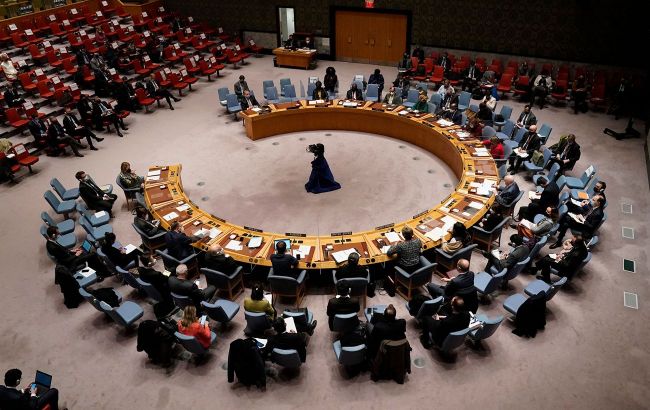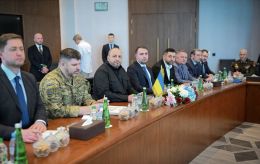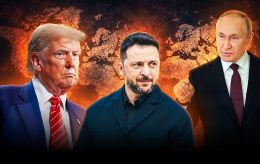Russian Federation uses UN Security Council for information operations
 Russia promotes propagandistic narratives through the UN Security Council (photo: Getty Images)
Russia promotes propagandistic narratives through the UN Security Council (photo: Getty Images)
The Russian Federation is utilizing the UN Security Council to advance its information operations. The campaign's goal is to persuade international partners to cease providing weapons to Ukraine, according to the Institute for the Study of War (ISW).
In the report, it is noted that on January 22, Russia called a meeting of the UN Security Council. During the meeting, Russian Foreign Minister Sergey Lavrov accused Western countries of refusing to negotiate, stating that Moscow has always been ready for dialogue.
At the same time, according to the ISW, the minister clarified that Russia is interested solely in negotiations on removing the current Ukrainian government from power, confirming that Moscow still officially seeks a change of regime in Ukraine.
"Lavrov continued to deny Ukraine’s independence and sovereignty, falsely claiming that the Ukrainian people have no interests in the war against Russia and that the West has pushed Ukraine to continue the war. Lavrov advised the West to understand that Ukrainian President Volodymyr Zelenskyy’s peace formula is a path to nowhere, claiming that the sooner [the West] realizes this, the better it will be for both Ukraine and the West," the report states.
During the UN Security Council meeting, the head of the Russian Ministry of Foreign Affairs also claimed that if Ukraine stops fighting, hundreds of thousands of Ukrainian lives will be saved. ISW notes that he had previously voiced similar messages, implying that Russia could occupy more territory during the war, further weakening Ukraine's negotiating position.
Additionally, during the meeting, Lavrov denied the Kremlin's responsibility for concerns that Russia might attack NATO in the future, ignoring recent official statements of Moscow expressing such worries.
He also accused Ukrainian Forces of striking the territory occupied by Russia in Ukraine, which the Kremlin used to support Russian justifications for the war to conquer the country.
Recently, the head of the Russian Ministry of Foreign Affairs claimed that Ukrainian Forces used Western weapons to strike civilian targets, referring to the shelling of temporarily occupied Donetsk on January 21.
Lavrov also asserted that Russians and Ukrainians will live like brothers and good neighbors after Russia achieves its goals in the war in Ukraine, which ISW continues to evaluate as Ukraine's capitulation and surrender to Western countries.
According to the Institute for the Study of War, these threatening messages are an attempt to sow instability and create information conditions for possible future aggressive actions by Russia against NATO members and other post-Soviet states.
"Russia’s request for the January 22 UNSC meeting to discuss arms supplies to Ukraine and Lavrov’s use of this meeting to promote various Kremlin information operations is likely an attempt to legitimize these Kremlin narratives," the ISW report states.
Threat of war between Russia and NATO
In recent weeks, an increasing number of European leaders have been expressing concerns about the growing threat of a Russian attack on NATO countries.
The Chief of Defence of Norway, Eirik Kristoffersen, called on NATO members to increase their military capabilities to be prepared for a potential war with Russia.
Earlier, the admiral of the North Atlantic Alliance, after a two-day meeting of the military committee in Brussels, advised people to prepare for war and outlined a series of recommendations.
The German publication Bild reported that the Bundeswehr is preparing for a hybrid Russian attack on the eastern flank of the Alliance. The attack could happen as early as February of this year.
Meanwhile, Poland and Lithuania will conduct military exercises in the Suwalki Corridor.

